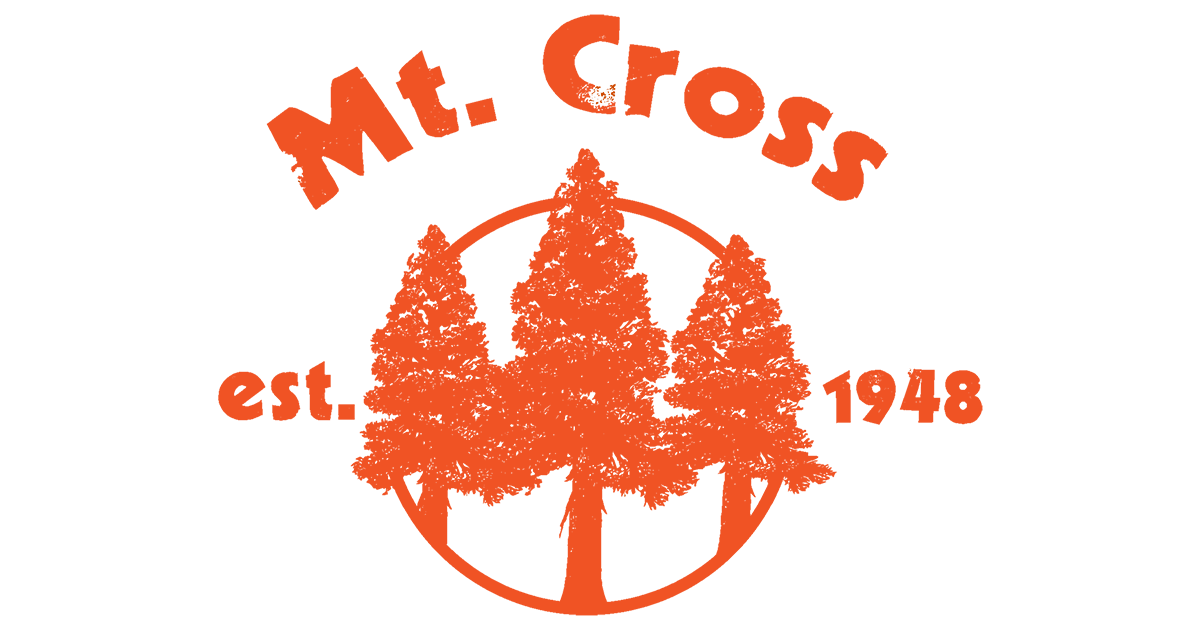Foundations of Creation
In Foundations of Creation, Pastor Cristina reflects on God’s vast creative power from Job, Psalm 104, and Luke 5, inviting us to rediscover awe for the oceans and our sacred role in caring for creation. Through storytelling, humor, and poetry, she reminds us that stewardship begins with gratitude for the world’s divine foundations.
SCRIPTURE READINGS
Our first reading is from the book of Job chapter 38. Then the Lord answered Job out of the whirlwind. Who is this? That darkens counsel by words without knowledge. Squirt up your loins like a man, I will question you and you shall declare to me, where were you when I laid the foundation of the earth? Who determined its measurements? Surely you know who laid its cornerstone when the morning stars sang together and all the heavenly beings shouted for joy. Or who shut in the sea with the doors when it burst out from the womb when I made the clouds its garment and thick darkness its swaddling band and prescribed bounds for it and said. Thus far shall you come and no farther, and here shall your proud waves be stopped. Have you commanded the morning since your days began and caused the dawn to know its place so that it might take hold of the skirts of the earth and the wicket be shaken out of it? Have the gates of death been revealed to you? Have you comprehended the expanse of the earth? Declare, if you know all of this, Job.
Our next reading is from Psalm 104. Bless the Lord, oh my soul, O Lord my God, you are very great. You are clothed with honor and majesty wrapped in light as well as a garment. You stretch out the heavens like a tent. You set the beams of your chambers on the waters. You ride on the wings of the wind. You make a fire and flame your ministers. You set the earth on its foundations and so that it shall never be shaken. You cover it with the deep as with a garment, the waters stood above the foundations. Oh Lord, how manifold are your works and wisdom you have made them all. There is the sea, great and wide and living things, both small and great. There go the ships and Leviathan that you formed to sport in it. I love Leviathan. Me too. It’s my favorite.
Today’s good news is a reading from the Gospel of Luke chapter 5. Once, while Jesus was standing beside the lake of Janeerre and the crowd was pressing in on him to hear the word of God. He saw two boats there at the shore of the lake. The fishermen had gotten out of them and were washing their nets. He got into one of the boats. And one and the one belonging to Simon. And asked him to put out a little ways from the shore. Then he sat down and taught the crowds from the boat. When he had finished speaking, he said to Simon, Put out into the deep water and let down your nets for a catch. Simon answered, Master, we have worked all night long but have caught nothing. Yet if you say so, I will let down the nets. And when they had. Done this, they caught so many fish that their nets were beginning to burst. So they signaled their partners in the other boat to come and help them, and they came and filled both boats so that they began to sink. But when Simon Peter saw it, he fell down at Jesus’ knee, saying, Go away from me, Lord, for I am a sinful man. For he and all who were with him were astonished at the catch of fish that they were taken and so also were James and John, sons of Zebedee who were partners with Simon. Then Jesus said to Simon, do not be afraid. Remember, he says this a lot, do not be afraid. From now on you will be catching people. When they had brought their boats to shore, they left everything and followed him.
SERMON
The ocean calls me, literally on the phone every single day. If you ever watched the Disney movie Moana, you may have heard the song How Far I’ll Go, the story of a young Hawaiian princess who must look for more land for her people so they can eat and be cared for, and I love these lyrics and well pretty much every time I’m headed to the beach or anywhere I need to feel that sensation, it goes through my mind. Every turn I take, every trail I track, every path I make, every road leads back to the place I know where I cannot go, where I long to be. See the line where the sky meets the sea, it calls me. No one knows how far it goes. If the wind in my sail on the on the sea stays behind me one day, I’ll know. I’ll go. There’s just if I go, there’s just no no telling how far I’ll go.
This magically. Happens this place where water meets the land where scientists believe that there are over 2 million marine species, uh, living in the ocean we only have discovered 240,000 of them so far. Imagine that over 2 million species we’ve discovered 240,000 and in fact, exciting information is that my brother and my grandfather discovered one of them. When, uh, it was probably about 1977, uh, my grandfather was a great fisherman. He fished every single weekend. He had a boat that he took out every single weekend unless it was pouring rain or he came to visit his beautiful grandchildren. He went out on his boat and he fished, and my brother, when visiting, we get to go fishing with his grandfather and has followed in his footsteps and is also a great fisherman. And they caught this bizarre long flappy skinny looking fish kind of like an eel but it wasn’t an eel and it was definitely a fish but it wasn’t a fish and they didn’t know what in the world it was and so they brought it and we all looked at it we’re like, oh, cool, what is that? So they took it to the Scripps Institute down in San Diego and they said we don’t know what that is and so they put it in their collection. of all the other fish they don’t know what they are and one day uh my grandfather got a letter to tell them they had discovered more of this thing and they give it a name. I don’t remember what it is. I’m sorry. I don’t remember the name that they gave up, but they gave it a name and it was a new fish that they had discovered so that is how little. We have a knowledge of the creatures that live in the ocean below our own, our own boats and the places that we meander and we and we wander.
The vastness of the oceans has always been a mystery. I’m reading from Job today, right? God questions and interrogates Job, if you really think about it, he interrogated Job on whether or not he has the full capability of understanding the vastness of the world around him. Cause Job is questioning, so I don’t know God, are you really all that because you know things are going on in my life and I’m not sure now what’s happening. And this is what you and this is this is the answer and I just want to think if you ask God a question recently, if this was what you’d be prepared for for the answer. Just saying, if you’d asked God a question recently. Where were you when I laid the foundation of the earth, Job? Who determined its measurements? Surely you must know who laid its cornerstone when the morning stars sang together and all the heavenly beings shouted for joy, huh? Job? Was it you? Were you there? or who shut in the sea with doors when it burst out from the womb when I made. The clouds, it’s garments and thick darkness, it’s swaddling band and prescribed the bounds for it and then said, Thus far shall you come and no further, and here shall your proud waves be stopped. How many of you got an answer like that from God recently? cause that, that’s a scary answer, a good answer, a strong answer, an important answer, but man, I like when God answers me with oh, Christina, I will work on that just for you because I love you. That’s the answer I’m always looking for. So I would hate to be Joe.
The oceans, they have no boundaries. The seas are one large space to imagine filled with creatures of all shapes and sizes as humans, as humans, it reaches into depths and spaces we cannot even travel, filled with life we may never ever know. They’re now, of course, they’ve come up with those unmanned submarines that can go into the depths deep, deep, deep, like we’ve, they’ve been looking at, um, uh, what’s the one that. What’s the the big the boat that the boat that they what was that? The Titanic they’ve been looking at the Titanic, right? So far we can’t swim that they’ve been looking at the Titanic and all the things going on there, but it’s crazy what we don’t know in fact about the greatness of the ocean and sometimes we take it for granted.
But did you know that 71% of the earth is covered in water? 71%. That’s a kind of a big number if you think about it. And that means that there’s more ocean than there is land. That there are more creatures in the water than there are on the land. And if you think about this for another minute in just a half beat, do you guys know how much water humans are made from? That’s all those are really good guesses. I really, really wanted it to be 71%, um, because I wanted it to be the same, so bad. Um, it’s 60%, which is close to 70%. It’s 60%, we’re made up of 60% water. That’s more than 50% of our bodies are, are using and need water in them. It’s why we carry these ginormous water water bottles where we go now because we’re like, oh, we need more water. And in fact, if I had anything to do with this idea that we are 60% water and we need that much water to exist, um, I will say we’re almost mermaids. And we’re almost mermaids, um, and if I had the choice, I would be the mermaid. If I had a choice right now today and like Ariel, Ariel really wanted to walk on that she wanted legs and she wanted to go see what the people saw. I’m more like the opposite. I’m like, I wanna be like a mermaid and I want a tail and I wanna swim through the ocean for the rest of my life. I, that would be so much more interesting to me than living on the land. But here we are, we don’t, either way it doesn’t go.
But for thousands of years. We have been trying to tame the waters for thousands of years as human beings go, we have wanted to tame and understand greater the waters that surround us. There was a time, of course, we didn’t know where the waters started or where they ended, and they don’t really start or end, but that’s not. I mean they do actually. There’s a spot right in the ocean that like literally they meet. The East and the West meet. It’s got a name. I didn’t look it up. I apologize. So if you really wanna know, you guys have a phone in front of you and you could Google it, tell us later. But they do meet, there’s a place where they meet. But if you think about this, right? You look out at the ocean and it just goes. And then there’s nothing, you know, have no idea where it comes, where it ends, where it’s gonna keep going. Now of course we have planes, trains, automobiles every way. We’ve got sonar, we’ve got, we got everything. We know where it comes, we know where it goes, we know all of that. But do you imagine a time when you just looked out and it was just fast water everywhere. And boats were just fishing boats they weren’t anything much, and I think about the Vikings because by golly they built boats and they went everywhere they did not care. They got in their boats and they went as far as they could possibly go in those boats to discover new land wherever that might be and they died trying they didn’t care um because that was innately what they did. It’s apparently um a part of our DNA to want to know more about what is out there and we all strive humans strive to get to know the oceans.
We need the oceans. In fact, the oceans are part of our living existence we can’t exist without the oceans and a lot of people be like, oh, we don’t need oceans, but we do. The oceans are not some arbitrary mistake that make the earth a place we can live, right? We have all of the things, right? How many planets how many planets can we live on? We have one planet that human beings can live on, one and only one, and as of right now, we don’t know of any other planets in our solar system that any kind of beings live on, right? We’ve been trying to figure this out for a long time and so far no beings on other planets in our solar system. What goes on past our solar system that’s a mystery, and I can’t share that because I don’t have that information. I have not been abducted by aliens and they have not given me all of the details. So for now I just say I only know of one solar system and what we do know is that we’re the only living beings in in this sort of human state animal state like nowhere else is there something quite like us. So we have one place and one place only that we can survive. That’s it.
I think it’s a pretty phenomenal thing to know that in this solar system of all these, these other planets and stuff, it’s just this one, just one. We cannot leave here and go anywhere else. We have one place that we can live that we’ve been created to be a part of that this one place sustains us in all aspects from the air that you breathe, from the water that comes from the sky, because we, again, why do we need oceans because the water has to go up to the sky from somewhere. And it has to evaporate out of the oceans and go up into the sky, which becomes rain, which is clean water and which we drink and live off of and so on and so forth. This it’s a, it’s a circle is it the circle of life. I’m gonna do all Disney Disney only day. Everything is just gonna be about Disney. We got Moana already. Who was I gotta I’ll get Poca. I got the Little Mermaid, uh, now I’ve got the Lion King. I might hit Pocahontas in a minute or two because I think I could put her in here, the discovery of all kinds of things in the United States, um.
We, we survive here because this place is perfect for us. It is perfect for us. There is nothing about the creation of this planet that isn’t perfect for us. The food we eat, the, the plants that create the oxygen we need to breathe, the I mean everything about this place that we are sustained in is perfect for us. Except, you know what’s imperfect about this place? Us The one thing that that maybe God got wrong with us in this beautiful, imaginative, wonderful place, and that’s not true either. Because we know we can take care of it. We have all of the abilities and the skills to take care of this place of which we live in this place we understand we’re connected to it every bit and being of us is connected to it. It’s um right going back to um the Lion King when when Simba’s asking his dad about death, well, you know. The lions hunt the antelope. We eat the antelope, then it becomes a part of the earth, and then, you know, everything, everything comes and everything goes, and we’re all connected in this way together. We understand that. We are all interconnected together. We live off of one another in order to survive and to live and for this, this beautiful earth to thrive. But there are things we do that change that. Right, as humans go, we’re very, very smart. We’re very, very smart and very creative. Humans are extremely creative. And so we create all kinds of amazing things that sometimes do damage. They sometimes they damage the earth and so then we have to get creative again, don’t we? And so when we’re told that something is damaging the earth we all should be up in arms by the way, and we should all be saying no we don’t do that anymore, we can’t do that anymore and it’s OK for us to say that by the way, that’s that doesn’t make us bad to be able to stop and go, hey, we are actually that smart and we’re actually that creative and we’ve been given the task of caring for.
This marvelous, marvelous place that we Have we live in and there’s nowhere else for us to go so we have to take care of it and it’s OK to say, hey, you know we made that mistake a few years ago we started making that plastic stuff and we loved plastic stuff, really loved the plastic stuff, not gonna lie, so convenient little Ziploc baggies stick stuff in there, zip it up, stick it in your bag. Let’s go. Love my plastic stuff, plastic water bottles, fill it. I drink them, throw them, start another one, plastic water bottles, amazing. Turns out we can’t have all those things. We just can’t. So we have been getting our new water bottles our fancy, we’re filling up our water bottles. We’re trying not to use plastic baggies, we’re trying to do things that are reusable. We can relearn how to be appropriate human beings in this vast beautiful place that God has created into uh into a home for us.
And I’m not sure sometimes if we remember that, not sure if we always remember how interconnected we are we are so interconnected to every aspect of what happens on this earth, right? I mean, I think that that’s some of the things that I learn as I go that yes we need the water and we need the clean water which means that we can’t pollute the clean water, which means we can’t just dump anything into the ground because the ground. Goes down and then we have groundwater. It gets in the groundwater and that’s back into our water and then we have to drink dirty gross water. We have to, we have to drink contaminated water and we go oh we don’t want contaminated water. We need to have ocean. We need to have ocean so that we get evaporation which creates clouds which creates rain which creates clean water again we have to have these things we have to have ocean to have fish we sustain ourselves on these things that we have and we need all of them and they’re intricately woven together and the one thing that sort of offsets all of this is us. We sometimes don’t know our own boundaries. We have a job as human beings to protect that which has been given to us, and we sometimes we forget. I forget sometimes. I try so hard to do all of the right things, uh, and often times I find myself like, oh, I’m just too tired right now to do all the right things, so I’m not going to and I get out my little plastic baggie and I open it and I put stuff in, I zip it up and I throw it away later that day with small amounts of guilt every single time, every single time.
But as we enter this time of creation season together and we talk about these different spaces and places of which we are intertwined, I want us to talk about what we can do. And I know this is, we’re a small number of people, I get that. But you know, we also have friends. And we can share and talk and give gifts. I give lots of strange gifts to people for Christmas and stuff. They’re like, Well, I never knew I needed one of these, and I’m like, oh, everybody needs one of those because that’s gonna keep you from putting plastic baggies in the, in the, um, trash. I’m gonna give you guys all kinds of weird gifts you never thought you wanted walking around with my bamboo straws and my bamboo, um, utensils in my purse and all kinds of strange things that sometimes those utensils are missing and I don’t know where they went. So now I’ve been using plastic again and I’m like, oh, not the plastic.
We all can do the work necessary. And I know it feels like we’re the only ones sometimes, and then you look around and you’re like, no one else is doing it, why should I? Just takes one each time and then it takes education to help people along the way. And to bring people with you on this journey as we go into understanding this, this is not our final place, but it is the place we know best and it’s the place we know best now. And then we look at children and babies and all the animals and we think this is the place they know it’s the only place they know right now and we want them to know it as the best and it’s the place and it’s our job to maintain that we’re called we’re called in our scriptures to maintain this place, the caretakers of what we have been gifted.
As I was looking through, I, I was thinking about, you know, how I wanted to end my sermon today and so I did a little research and I found a poem written by Amanda Gorman. Does anybody remember who Amanda Gorman is? She, um, yes, she shared a poem at the inauguration, the 2021 inauguration of President Biden. And she’s now famous. There’s not a lot of famous poets in the world, and there’s a lot of beautiful poetry out there. And so I’m pleased to be able to share this poem with you this morning. It’s called Ode to our ocean. I won’t do it justice as she would read it, but I’ll try my best.
The sea sings out to its many saviors, teenagers with fists thrust into the air at climate strikes, scientists converging around their data, a child who stoops to scoop up a piece of trash. The sea sings out for its singular subjects, arching whales that wave from the waves, turtles that teeter down their shining shores, coral reefs shining brightly as cities. The sea sings out its suffering, knowing too much of waste, screeching sounds, and pernicious poison, its depths bruised by atrocytes in the Atlantic, misery in the Mediterranean, its tides, the preserves of time past. The story of the ocean and the story of humanity are one and the same, a great river that knows no borders and notes no lines. Only ripples. While we might call it the seven seas, today we sing out your true name, the one ocean. For no matter how we try to separate your waters, you are the colossus that connects us. Waters make up 70% of Earth, 70% of the human heart, and 70% of the human being, all of us bodies of water, for we to our oceans, or at least beings bobbing in the same boat to stand up for our ocean is to stand up for our own ship. The sea is a restless, strong collective of many pieces. So are we. The ocean can recover. And so will we. Let us not divide the tides, but discover all they have to teach us. Green meadows of sea grass that survive pathogens, blue bloodied marine snails that can fight off viruses. There are more lessons to learn, still more work to be done. So we lift our faces to the sun. May the seas help us see healing and hope. May we sing out the ocean’s survival and revival. Being the people of this blue planet is our most profound privilege and power. For if we be the ocean’s saviors, then it is surely ours.
SCRIPTURE REFERENCES
- Job 38 (selected verses)
- Psalm 104 (selected verses)
- Luke 5 (call of Simon and miraculous catch)

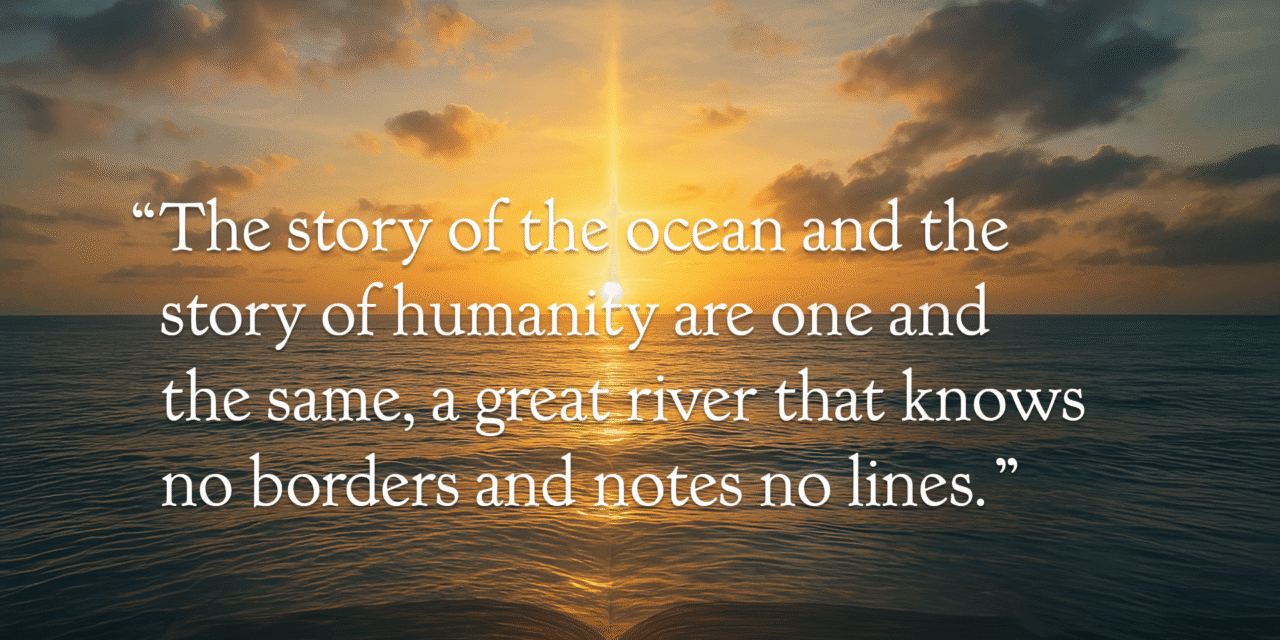
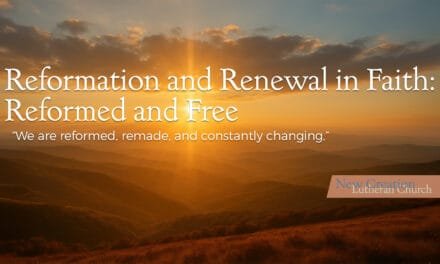
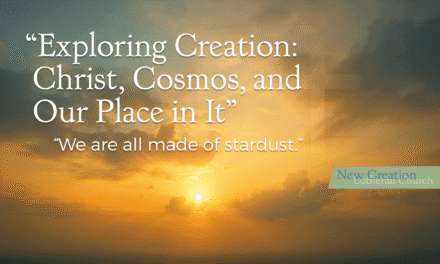
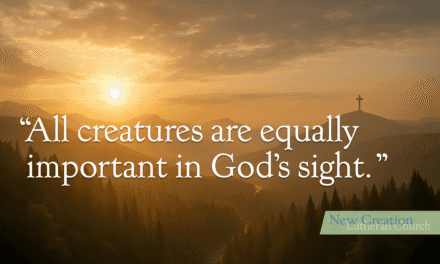
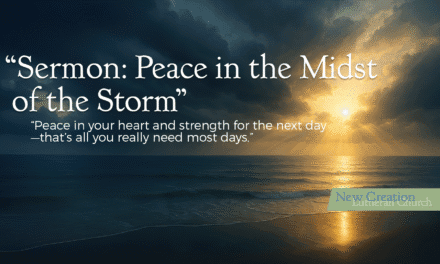
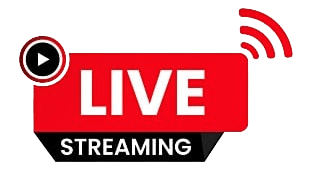

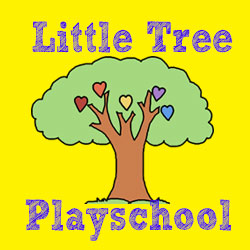
 Our Latest Updates on
Our Latest Updates on
